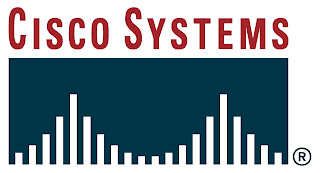I was struck by how the 2016 Summer Olympics in Brazil ended up damaging the country. Places are declining and the benefits do not seem worth the cost. This kind of thing has massively reduced the number of cities that want to host the games in the future.
However, when I spoke with Cisco representatives the other day, they told me about their continued success in Brazil and London with their Olympic efforts. The company focused on helping local start-ups use their technology to innovate, resulting in hundreds of new customers and jobs in the regions, as well as a positive impact on Cisco's revenues.
Outreach programs like this often have surprising results and show that companies can combine their social responsibility efforts with business growth. In other words, they do well while doing good.
Hoxton Analytics - London Olympics:
Retail stores often want to follow customers, if only to find out which screens are working and which are not working. But facial recognition, which has been successful, has one major disadvantage: it can violate local privacy laws.
Hoxton Analytics has partnered with Cisco to create a solution to track shoes and steps. It turned out to be not only more private than facial recognition, but also more accurate. (I had to repeat them because I could not believe). Now deployed in shopping malls, stores, airports, museums and other venues, footwear and step-tracking are proving to be very valuable to customers who need information about traffic patterns and behavior client. This greatly improves the quality of the tracking data without violating confidentiality.
The company took advantage of the Cisco Innovation Center in London, which also connects startups such as Hoxton Analytics to business customers using the resulting solution. Cisco has helped the company develop its solution and is actively helping to sell it. This center, IDEALondon, has helped 60 new businesses and raised more than 70 million pounds to create 400 new jobs to date (and Cisco is extending this effort with Mi-Idea in Manchester).
Porto Maravilha - Olympic Games Rio:
This project caught my attention because of the implications it had for making schools safer, especially after the recent shootings in Florida. In Porto Maravilha, an economically disadvantaged area that was to be raised for the Olympic Games, Cisco and the city government created and installed a complete and relatively inexpensive Smart City system. It included Wi-Fi connected cameras, noise sensors and other devices, and provided 15 smart urban services. This solution has also been designed for rapid prototyping, development and implementation of future services.
The part that caught my attention was the integration of cameras and noise sensors so that active shooters could be located and quickly mitigated at the city level. This was created with a series of new local businesses, and the Cisco Rio Innovation Center has co-created 50 additional solutions with partners since its inception.
Songdo, South Korea - Pyeongchang Olympics:
In South Korea, Cisco has created a "living laboratory" called IoT Cube to drive innovation in the technology of Songdo Smart City deployed in this country. South Korea is considered one of the most advanced countries in terms of smart city technology and the Internet. Using advanced concepts such as computer fog, Cisco was able to demonstrate real-time data tracking and analysis for the citizens of Songdo, which was critical to ensuring that resources were where citizens needed them.
This was a very real example of the next generation of 5G wireless networks and has become a global showcase of what will be possible. Songdo is another location for the Cisco Innovation Center.
Tokyo Olympics:
In Tokyo in 2020, Cisco intends to further expand what it has done in South Korea by offering advanced computer fog solutions, which should significantly enhance 5G and IoT deployments in the region. this moment. The Innovation Center is working with organizations such as Toshiba, Mitsui Knowledge Industry and Tokuda Lab at the famous Keio University to demonstrate what can be done with the next generation of connected technologies. The overall effort seems to be designed to help Tokyo citizens and Olympic visitors improve the quality of their lives, their work, their education and their long-term recreation.
Sell And Make A Better World:
Technological companies often seem to want one thing: to buy their products no matter whether it's right or even if you really need it. What Cisco stands out for its innovation centers and the efforts of the Olympic Games is that through engagement, a company can not only generate strategic business opportunities, but also significantly improve the quality and the safety of human life. Making a better world takes longer, but supports a company's strategic future and makes it a preferred business customer not just to governments, but to partner. In short, efforts like this not only ensure the future of Cisco, but can also guarantee ours.
In my book, it's a very good thing.

No comments:
Post a Comment
Note: only a member of this blog may post a comment.